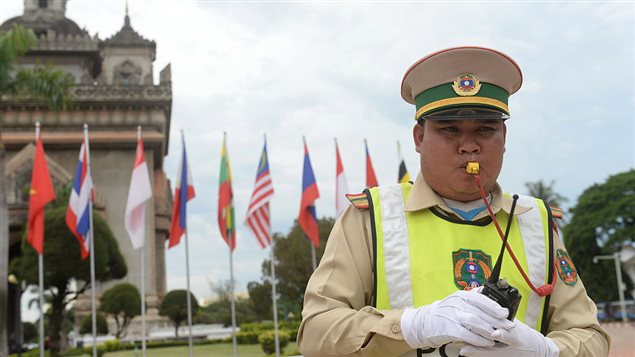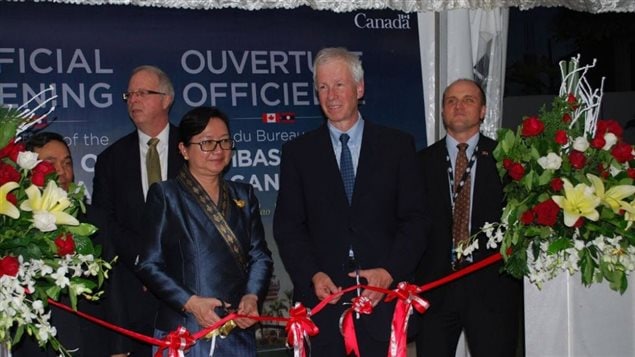Foreign Affairs Minister Stephane Dion officially unveiled Canada’s latest diplomatic mission in Southeast Asia during his visit to Laos to participate in the annual meeting of the Association of Southeast Asian Nations (ASEAN) on Monday.
The embassy in the capital, Vientiane, is a diplomatic office not a full-fledged embassy yet, said Global Affairs Canada spokesman Francois Lasalle . Canada’s ambassador in neighbouring Thailand will continue to serve as the ambassador to the Lao People’s Democratic Republic (PDR) as well.
“The ASEAN region is one of the most dynamic in the world. Economic opportunities therein are numerous and varied,” Lasalle wrote in an email. “For Canada, it is thus important to have a physical presence across the region. With the opening of our Offices in Laos – we set up another one in Cambodia at the same time – we now have resident diplomatic representation in all 10 ASEAN member states.”
To save money Canada is subletting space for its office in Laos in the Australian embassy for about $35,000 a year.
Co-locating offices with #Australia is a way to save money and deepen partnership between ?? & ??. Happy to host Australia in #Ukraine
— Stéphane Dion (@MinCanadaFA) July 25, 2016
Canada’s diplomatic relations with the communist country stretch back to 1954, shortly after Laos gained its independence from France in 1949. In 1975, the communist Pathet Lao overthrew a six-century-old monarchy and instituted a strict socialist regime closely aligned to Vietnam.
Laos remains one the last one-party communist states in the world. However, in 1988, the communist government began a gradual, limited return to private enterprise and liberalized of foreign investment laws. Laos became a member of ASEAN in 1997 and the World Trade Organization in 2013.

Its economy – largely dependent on agriculture, forestry and mining – has been one of the fastest growing in the region (averaging about 7 per cent in the last three years) and has attracted a lot of interest from Canadian firms.
“There is strong potential for growth in trade as demonstrated by Canadian investments in Laos in recent years in information and communications technology (Celestica) and industrial metals (5NPlus) production facilities,” said Lasalle.
“There are also good commercial opportunities in areas where Canada is strong such as hydro, mining, aerospace and technical and vocational training education. Canadian companies can play a positive role as responsible investors.”
The promotion of human rights in the communist country is another Canadian priority, he said.
“Having a permanent diplomatic presence in Laos will make it easier for Canada to monitor developments and to engage with the Lao government and civil society on this important issue,” Lasalle said.







For reasons beyond our control, and for an undetermined period of time, our comment section is now closed. However, our social networks remain open to your contributions.